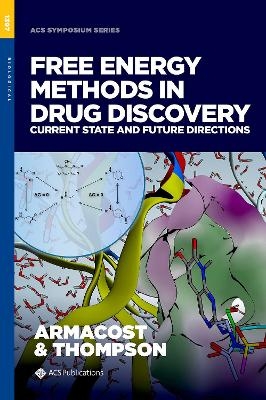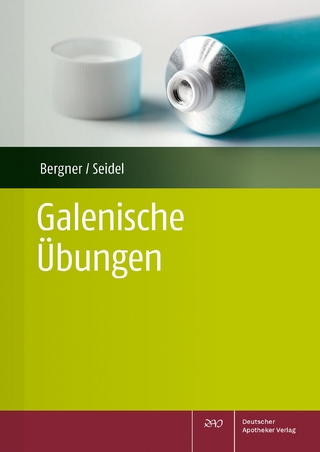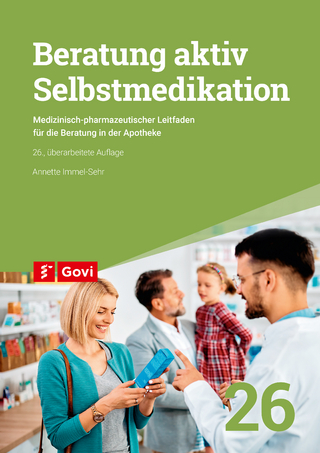
Free Energy Methods in Drug Discovery
Oxford University Press Inc (Verlag)
978-0-8412-9806-4 (ISBN)
- Keine Verlagsinformationen verfügbar
- Artikel merken
Panoramic review of free energy methods
Continuous improvement in both hardware and software has resulted in the widespread use of rigorous free energy methodologies in the field of drug discovery. Given this, the practitioner, development, and commercial communities find themselves in ever closer collaboration working to apply these methodologies in the search for novel therapeutic agents. This work presents contributions from expert leaders across the free energy field and explores both the current and possible future states of
method development, application, and utilization. Researchers engaged in computational, physical, and pharmaceutical research will find this collection valuable.
Kira A. Armacost received her undergraduate degree in chemistry at the University of Tampa, Ph.D. from Auburn University, and performed postdoctoral research at the University of Michigan. The focus of her doctoral and postdoctoral research was using free energy calculations in organic chemistry and drug discovery. After her postdoctoral fellowship, she accepted a position at Merck & Co., Inc. working on drug discovery projects for multiple therapeutic areas. Kira recently transitioned to GlaxoSmithKline Pharmaceuticals in the Computational Sciences group performing research in drug discovery. Kira has been actively involved in the ACS, serving as an alternate councilor for ACS COMP, previously chaired the Journal of Chemical Information and Modeling's Early Career Board (2017-2020) and is now on the Editorial Advisory board for JCIM. She also participates in STEM initiatives for middle and high school students, is a co-organizer for the Women Make COMP symposium at ACS meetings and is a mentor for girls and women in computational chemistry. David C. Thompson has an undergraduate degree in Chemical Physics from University College London, and a Ph.D. in Theoretical Chemistry from the University of Cambridge. Following a post-doctoral fellowship focused on numerical methods in electronic structure, David transitioned into the pharmaceutical industry and spent many years providing computational support and solutions to drug discovery programs. David's research spans foundational quantum mechanics through open innovation, crowd sourcing, and novel methods of organizational learning. Currently at Chemical Computing Group (CCG), David is a member of the support team helping CCG customers translate their scientific problems into actionable solutions.
Preface
Preface
Chapter 1: Free Energy Methods in Drug Discovery-Introduction, Zoe Cournia, Christophe Chipot, Benoît Roux, Darrin M. York, and Woody Sherman
Chapter 2: Use of Free Energy Methods in the Drug Discovery Industry, Katharina Meier, Joseph P. Bluck, and Clara D. Christ
Chapter 3: Perspective on the SAMPL and D3R Blind Prediction Challenges for Physics-Based Free Energy Methods, Nicolas Tielker, Lukas Eberlein, Oliver Beckstein, Stefan Güssregen, Bogdan I. Iorga, Stefan M. Kast, and Shuai Liu
Chapter 4: On the Issues Impacting Reproducibility of Alchemical Free Energy Calculations, Miroslav Suruzhon, Marley L. Samways, and Jonathan W. Essex
Chapter 5: Prospective Application of Free Energy Methods in Drug Discovery Programs, Aysegül Özen, Emanuele Perola, Natasja Brooijmans, and Joseph Kim
Chapter 6: Computational Approaches for Protein pKa Calculations, Dilek Coskun
Chapter 7: Robust, Efficient and Automated Methods for Accurate Prediction of Protein-Ligand Binding Affinities in AMBER Drug Discovery Boost, Tai-Sung Lee, Hsu-Chun Tsai, Abir Ganguly, Timothy J. Giese, and Darrin M. York
Chapter 8: Impacting Drug Discovery Projects with Large-Scale Enumerations, Machine Learning Strategies, and Free-Energy Predictions, Jennifer L. Knight, Karl Leswing, Pieter H. Bos, and Lingle Wang
Chapter 9: Optimizing Simulations Protocols for Relative Free Energy Calculations, Paul Labute and Maximilian Ebert
Chapter 10: Fast, Routine Free Energy of Binding Estimation Using Movable Type, Lance M. Westerhoff and Zheng Zheng
Chapter 11: Free Energy Methods in Drug Discovery: Who We Are, Where We Are, and Where We Are Going, Kira A. Armacost, Eric C. Gladstone, and David C. Thompson
Editors' Biographies
Author Index
Subject Index
| Erscheinungsdatum | 10.01.2022 |
|---|---|
| Reihe/Serie | ACS SYMPOSIUM SERIES |
| Verlagsort | New York |
| Sprache | englisch |
| Maße | 183 x 261 mm |
| Gewicht | 900 g |
| Themenwelt | Medizin / Pharmazie ► Pflege |
| Medizin / Pharmazie ► Pharmazie ► PTA / PKA | |
| Naturwissenschaften ► Chemie ► Physikalische Chemie | |
| ISBN-10 | 0-8412-9806-8 / 0841298068 |
| ISBN-13 | 978-0-8412-9806-4 / 9780841298064 |
| Zustand | Neuware |
| Informationen gemäß Produktsicherheitsverordnung (GPSR) | |
| Haben Sie eine Frage zum Produkt? |
aus dem Bereich


